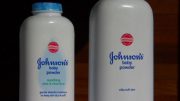Some Canadian hernia surgery patients have launched a class-action lawsuit against the maker of a now-recalled surgical mesh, claiming they weren’t warned of its dangers.
Patients are speaking out about a surgical device called Physiomesh Flexible Composite Mesh, which was used in Canada up until last year, when it was recalled and pulled from the market over concerns about higher rates of complications.
The mesh is made by Ethicon, a subsidiary of Johnson & Johnson. It became available on the Canadian market in September, 2010.
In June 2016, Health Canada issued a recall for Physiomesh after the manufacturers learned that the recurrence and reoperation rates after hernia repair using the mesh were higher than the average rates of other meshes
Ethicon said, at the time of the recall, the higher rates were “a multifactorial issue” including possible product characteristics and patient factors, but the company hadn’t been able “to fully characterize these factors.”
Now, a group of people who had the mesh surgically implanted are speaking out, saying they believe their pain and health problems are linked to the product.
According to the class action’s statement of claim, the plaintiffs allege that there is a “design defect” in the Physiomesh that causes it to contract, tear, or migrate, leading to such injuries as perforations, abscess and adhesion formations, infections, and the need for further surgery.
One of the complainants who filed the class-action is 34-year-old Colleen Copland. Doctors used the plastic mesh on a hole in her abdomen following routine hernia surgery. Copland has since learned her mesh “stretched out,” causing her hernia to recur and become more painful than ever.
“The pain is always there,” Copland told CTV News. “It feels like my insides are going to explode.”
She added: “If I cough or sneeze I have to hold my stomach. It is a horrible pain, to be honest.”
Not long after Copland’s surgery in February 2016, she learned the mesh was recalled and taken off the market.
Jaqueline Deschenes of Laval, Que. also suffered ongoing pain after her hernia surgery, during which she also received the mesh implant. She told CTV News, in French, that a surgeon told her the product was not good and they weren’t using it anymore.
Deschenes had the mesh removed in January 2015. But the pain has never left. She said she feels something “like a mass” inside her all the time.
Deschenes has also joined a class-action lawsuit against Johnson & Johnson, claiming she wasn’t warned of the dangers.
“It is our understanding that there are more people out there and there’s probably more people that are experiencing these kinds of side effects,” says lawyer Jill McCartney, who is representing plaintiffs.
She added there are likely others who have had their hernias “come back with a greater severity” and likely are experiencing pain and discomfort.
In a statement, the Johnson & Johnson unit that produced the mesh wrote: “At Ethicon, our first priority is to our customers and their patients, and that includes the safe and effective use of our products. Ethicon will defend itself against lawsuits concerning the use of our hernia mesh products.”
As many as 30,000 Canadians may have received this brand of mesh.
Dr. John Morrison, a Chatham, Ont.-based surgeon who specializes in mesh removal said what happens with recalled hernia mesh after it’s been implanted in patients depends on the patient’s symptoms.
“Unfortunately, there is not a whole lot to do for patients that have it, and my advice for patients is to leave it alone and if they have any problems with it, then it will have to be dealt with at that time,” Morrison said in an interview with CTV News.
Copland said she wonders how the mesh was approved for use in the first place and is now awaiting surgery to remove it at the Shouldice Hernia Centre, which specializes in usually mesh-free hernia repairs.
“I think there should be more testing on these products and not so quick to get them onto the market if they’re not ready,” he said. Copland is currently awaiting a second surgery to remove the mesh.
There have been other problems with hernia mesh. A class action lawsuit was launched over the Kugel mesh, which allegedly caused complications, including bowel perforations.
With a report by CTV News medical specialist Avis Favaro and producer Elizabeth St. Phillip
Source: www.ctvnews.ca




